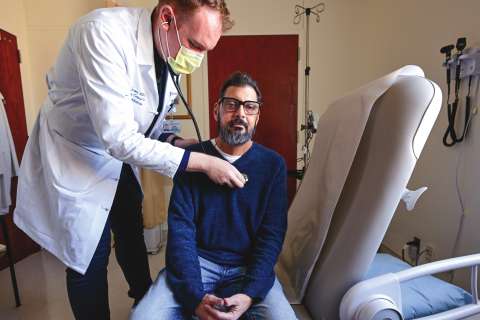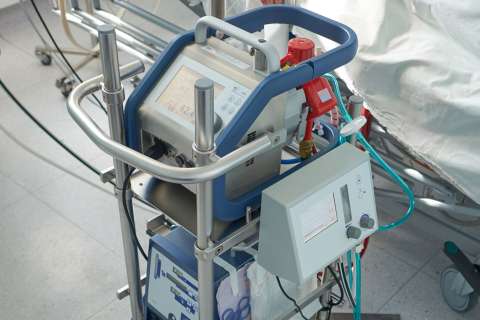A new analysis of published data finds no evidence to indicate that the long-standing practice of having patients fast for a period of time prior to surgery prevents post-surgical aspiration: vomiting that is followed by gastric contents getting into the lungs, which in turn causes what is known as aspiration pneumonia.
Why it matters
A universal phenomenon that patients dislike is not being able to eat before undergoing a procedure. This is done to avoid the risk of vomiting when anesthesia is given. The research, however, shows that there is no association between pre-surgery fasting and post-procedure vomiting to support this recommendation.
The study
The researchers reviewed randomized clinical trials comparing outcomes from pre-procedural fasting regimens as well as observational studies that were published between January 1, 2016, and December 1, 2023 of witnessed aspiration events. They included 801 patients in the experimental groups and 990 patients in the control groups. The main primary outcome was clinical aspiration. Secondary outcomes included gastric volume and pH. They performed random effects meta-analysis on the outcomes data. They also performed trial sequential analysis to determine the likelihood that further studies of fasting effects on aspiration events would change conclusions drawn from the current analysis.
What they found
Of the 3580 initial references found in the initial search, the researchers included 17 in their analysis. Of these, nine reported outcomes for aspiration events. Clinical aspiration was not affected by the various pre-procedural fasting regimens. The researchers found that aspiration was rare, occurring in four of 801 experimental group patients (incidence of 0.50%) and seven of the 990 control group patients (0.71%). Trial sequential analysis of aspiration studies showed little likelihood of finding a significant effect of new fasting regimens on aspiration. Most studies reported gastric volume and/or pH as a surrogate outcome for aspiration, which have never been shown to correlate with human anesthesia–related aspiration.
What's next
The next step, which the researchers have already taken, was to examine the literature showing the relationship between guidelines for duration of fasting and actual observed fasting times in various hospitals. They analyzed more than 80 published papers finding that people are fasting many more hours than necessary, creating substantial discomfort. This work has been completed. Another step will be to perform prospective trials where fasting durations before surgery are reduced and modern methods of assessing the risk for vomiting, such as preoperative gastric ultrasound, would be used to determine if it is safe to proceed with anesthesia.
From the experts
“At some point, almost everybody will undergo a procedure and there are universal policies in every healthcare facility that require some degree of fasting before surgery,” said Dr. Edward Livingston, health sciences professor of surgery at the David Geffen School of Medicine at UCLA and the study’s senior author. “Fasting for long periods of time is extremely uncomfortable and patients really don't like to do it. Our research suggests that long periods of fasting may not be necessary.”
About the study
No association between preprocedural fasting and witnessed pulmonary aspiration: A systematic review and meta-analysis, to be published in the August 2025 issue of the peer-reviewed journal Surgery. DOI: 10.1016/j.surg.2025.109483.
About the Research Team
Additional study authors are Dr. Stephanie Lam and Dr. Maxime Cannesson of the department of anesthesia at the David Geffen School of Medicine at UCLA, and Antonia Osuna-Garcia of UCLA Biomedical Library.
Funding and Disclosures
UCLA Department of Surgery research funds supported this study.





